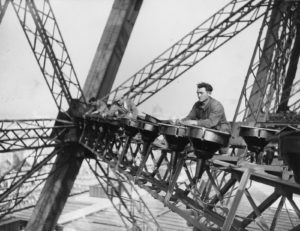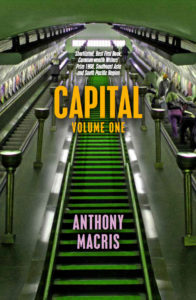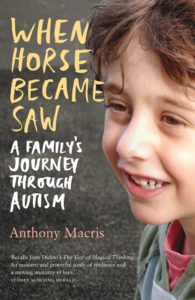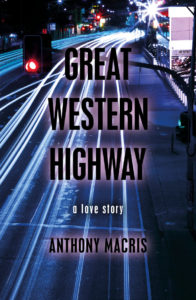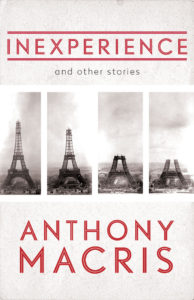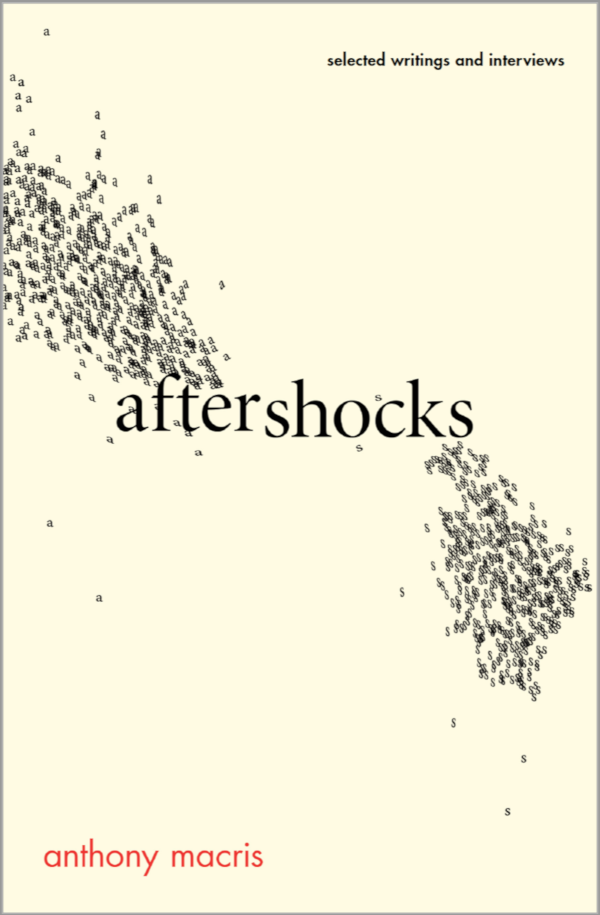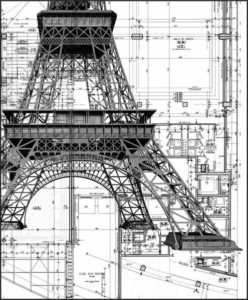REVIEWS
Inexperience and other stories (UWAP, 2016)
Sydney Review of Books
“A beautifully and sensitively written insight into the modern man’s struggle to navigate a world where gender roles are opaque, and where money is – always – the ultimate signifier of value. [It] forces readers to feel the anxieties inherent in every individual’s struggle to exist as an authentic ‘self’ in a capitalist, consumer culture that depends on both promising and denying the very possibility that such a self can ever be realised.”
Text
The Australian
“Macris’s insights on sad, isolated moments of intimacy, the fraught dialogue of avoidance, are to be savoured.”
The West Australian
“This is complex and thoughtful writing that eschews the idea of a book as an experience to be conveniently enjoyed (or in many cases inconveniently endured) and instead presents a narrative that is wilfully non-conformist.”
Australian Book Review
Great Western Highway (UWAP, 2012)
J.M.Coetzee (Nobel Laureate for Literature)
“[Macris] give[s] detailed and elegant descriptions of the flotsam of consumption and modern infrastructure, bringing his readers [to] really look at the objects which their daily projects push to the unfocussed periphery. Macris consolidates the stylistic achievement which made Capital Volume One such a critical success.”
Sydney Review of Books
“Macris is a psychogeographer of the urban: he reads the streets of Sydney, and particularly the unlovely section of highway that links the city with the Australian inland as a space where shifts in the way we live are most visible. … This novel marks the delayed re-emergence of a fascinating and urgent writer. Let’s hope the projected third part of Macris’s sequence doesn’t take so long to appear.”
The Australian
“Macris is a novelist who cares and thinks deeply about the world, even as he flings aside its multiple layers to criticise what he finds underneath. … Macris’s approach to novel-making offers important food for thought about what Australian political fiction should be – and should do.”
Australian Book Review
“Like [Claude] Simon, Macris is preoccupied with the vast fabric of living, with the ways in which the textures of past and present might be woven from the tiniest filaments of experience. Their shared objective is that of all serious novelists – the apprehension of reality in some unexpected or heightened or at least different way. In this regard, Macris has scored a considerable success: Great Western Highway is an ambitious, intelligent, tender and sometimes exasperating work of art.”
Jeffrey Poacher, Sydney Review of Books
Sydney Morning Herald/The Age
“Great Western Highway excels as an examination of the contradiction between the need to move on to something new and the desire to cling to something safe.”
The West Australian
“At the novel’s literal and metaphorical core is a Modernist stream-of-consciousness monologue from former UK Prime Minister Margaret Thatcher. Maggie Thatcher as free market mouthpiece – it’s an extraordinary piece of literature. … Great Western Highway is ambitious, experimental literature. It’s for this reason that UWA Publishing should be commended for taking a chance with this unconventional story of modern love.”
Verity Lane Magazine
“The story develops through some great dialogue, although most revealingly, through the protagonists’ inner monologues. Against the backdrop of this consumerist epoch of economic rationalism and televised wars on terror, Macris suggests societal forces that operate at a global scale also manifest at a deeply personal level. As rich in metaphors as it is, Great Western Highway rings most truly through its evocation of the most basic and real of human themes – love, and how to live a good life.”
Co-op Bookshop
“I found the intellectual ideas mesmerising, the quality of the prose outstanding and the storyline utterly engaging. What better vehicle to be flung around six lanes of inner-city traffic, up and down gutters, in and out of war zones, through ex-prime ministers’ heads and straight over the top of forgettable Hollywood thrillers than the contemporary novel? Macris puts it through its paces … A really terrific read.”
www.goodreads.com
When Horse Became Saw (Penguin, 2011)
Sunday Telegraph
“When Horse Became Saw is not a handbook, but the spontaneous reaction to it is that here’s a book that can only do good. As an anatomy of a non-normal neurological condition, as a testimony to the prolonged torture imposed on a family, and as a record of love, its use is obvious.”
Australian Literary Review
“The memoir’s sharp hooks and elegant writing build its questions into an insistent and powerful study of resilience and a moving anatomy of love.”
Sydney Morning Herald
“In restrained, lyrical prose Anthony Macris records their journey through profound anguish and moments of intense joy.”
Saturday Age
“This searing, poignant memoir raises difficult questions as it charts a couple’s anguished journey through a maze of befuddling bureaucracy.”
Courier Mail
“When Horse became Saw is a heartbreaking account of the Macris family’s journey through autism. It’s a grim story, a very personal story, one that will leave you drained and angry, yet one which will fill you with hope and love at the same time.”
Canberra Times
Hobart Mercury
“Macris employs the novelist’s skill so that he not only tells the reader the facts of his experience, but invites them to live it. [He] brilliantly captures the experience of watching his son ‘drift into some strange, terrifying world’ … blending imagination, observation, science. … He effectively lobbies on behalf of all of Australia’s autistic children. Bravo to this memoir for not shutting up.”
Australian Book Review
“It’s a damning indictment of the Australian government’s meagre provisions for families with autism. Readers with autistic loved ones will be grateful for this book; it’s also an engrossing general read and a poignant story of a couple’s fierce love for their son.”
Readings Review
“No amount of well-intentioned sympathy or policy prescription could have the impact of this father’s account of what it is like to live with a child who is autistic. Anthony Macris gives voice to the unspoken sorrow and estrangement that families such as his face — slapped with the insulting inadequacy of government services, worn down by the demands of daily life, drowning in a sea of literature that brings little relief. When Horse Became Saw is vivid, devastating, realistic, yet hopeful.”
The Age
Capital, Volume One (UWAP 2013, A&U 1997)
Andrew Riemer, Sydney Morning Herald
“The most assured and interesting first novel I have encountered for years. Brisbane and Bowie, busking and bricolage, tourism and walkman, Deleuze and Guattari, converge in the London Underground in a postmodern panic.”
Don Anderson
“Macris’s first novel is rightly described as astonishing. … [O]ne finishes reading with an altered view of the world. Capital reminded me of Melville’s The Confidence Man, with its deceptively gentle wit, devastating dissection of minutiae and layering of incident towards an ominous vision. The full title of this novel is Capital, Volume One, which I suspect is a teaser or perhaps, more optimistically, a stubborn expression of faith in the face of hopelessness because Macris’s vision is acutely apocalyptic.”
Margaret Simons, The Australian’s Review of Books
“[Capital, Volume One] sets your head buzzing with the powerful kind of thinking literary art allows.”
Heat
“One of the most interesting and original novels I have read in a long while.”
The Age
await the next.”
Courier Mail
“Macris presents a subtle, yet substantive indictment of Western—capitalist—society in the late 20th century.”
Antipodes (USA)
“There is a rare skill and confidence in this novel. It obviously has to do with postmodernist tactics of irony, pastiche and self-referentiality, but all is done with unusually intelligent humour and observation.”
Australian Book Review
“[The novel is] aligned with a distinguished literary tradition […]: classically, Balzac, Flaubert, Joyce, Robbe-Grillet; more recently Bret Easton Ellis…”
UTS Review
“A rollicking giant roller-coaster of a novel.”
Campaign
ABOUT ANTHONY MACRIS
 |
I was born in Brisbane, Queensland, to Greek parents. My mother was born on the island of Kythera. My father, to the best of my knowledge (he could be vague about facts), was born in Greek Asia minor. My parents had a fish and chip shop. I grew up in the 1960s & 70s during the Joh Bjelke-Petersen and Gough Whitlam eras, a high point in Australia’s periodic tug of war between conservative and progressive politics.
When I was fifteen I attended the Queensland College of Art, where I studied Commercial Illustration, then Fine Arts, and for a while I wanted to be a painter. But even though I loved making art – Marcel Duchamp and Francis Bacon have influenced my work as much as any writer – it was a false path: it took me a while to realise I was better with words. In 1983 I left Brisbane to attend the University of Sydney. For my undergraduate degree I majored in Philosophy and French and wrote fiction on the side. Apart from some extended periods in Paris, London and the US – feeble attempts to flee my homeland – I’ve lived in Sydney ever since.
My apprenticeship was standard for an Australian writer: publication of short fiction in literary journals, building up to a first novel. My first publication, the short story “Triumph of the Will” (1988) appeared in Southerly, Australia’s oldest literary journal. My first novel, Capital, Volume One (Allen & Unwin 1997), led to my listing as a 1998 Sydney Morning Herald Best Young Novelist and a shortlisting for the Commonwealth Writers’ Prize, Best First Book, South-East Asian section.
Like most writers, the influences on my work are diverse. I love the modernists like James Joyce, Samuel Beckett and Claude Simon. But I’m also fascinated by popular culture: everything and anything, from Hollywood epics to glam rock to advertising to television to digital cultures. I’m also interested in how the personal is shaped by the political and social, particularly the way market forces have come to dominate every aspect of our daily lives. Out of all these interests came my Capital novels: Capital, Volume One (A&U 1997, UWAP 2013), and Great Western Highway (Capital, Volume One, Part Two, UWAP 2012).
This large-scale project came to a halt in 2003 when my then 18-month-old son, Alex, suffered a severe autistic regression. His transformation was abrupt, cruel, and absolute. Alex’s autism prompted me to write a book about this all-consuming experience: When Horse Became Saw: a family’s journey through autism (Penguin 2011). It was written out of a sense of frustration at the negligible levels of government funding provided for children like him at the time. I wasn’t experienced in writing memoir or creative non-fiction, so I turned to Joan Didion and Helen Garner for inspiration. When Horse Became Saw went on to be shortlisted for the Prime Minister’s Literary Awards in 2012, as well as The Age Book of the Year.
I have three qualifications in creative writing – an MA Writing from the University of Technology Sydney (1994), an MA from Johns Hopkins University (1997) and a PhD from Western Sydney University (2002). My PhD dissertation comprised the first part of Great Western Highway, and a dissertation on the literary form the mise en abyme (images reflected within images), which I linked to poststructuralist theory. From time to time I publish scholarly work on subjects in literature and film. I’m currently an Associate Professor in creative writing and literary theory at the University of Technology Sydney, where I’ve taught for ten years.
For nearly two decades I’ve contributed essays, book reviews and feature articles to the national media, notably The Sydney Morning Herald, The Age, The Australian, The Bulletin, Australian Book Review, and Sydney Review of Books. I’ve received numerous grants from the Literature Board of the Australia Council, and my work has been translated into French, Mandarin and Serbian.
I live in Dundas, in Sydney’s west. When I’m not working, I like to take Alex cycling along the Parramatta River.
My most recent book is Inexperience & other Stories (UWAP 2016)
Selected Essays, Articles, Book Reviews
394 Abercrombie Street
(essay, Sydney Review of Books)
The Novel, Sense making and Mao
(essay, The Conversation)
Perception and Sensation in the Capital novels
(essay, Axon Journal)
Poor Karl Ove! (Some Rain Must Fall, by Karl Ove Knausgaard)
(review, Sydney Review of Books)
Falling Man, by Don DeLillo
(review, Sydney Morning Herald)
Against the Day, by Thomas Pynchon
(review, Sydney Morning Herald)
My Revolutions, by Hari Kunzru
(review, Sydney Morning Herald)
What I’m Reading
(nonfiction, Meanjin)
Reading French Literature in a Time of Terror
(nonfiction, The Conversation)
The Immobilized Body: Stanley Kubrick’s A Clockwork Orange
(paper, Screening The Past)
8 Turner Street, Redfern
(essay, Sydney Review of Books)
NEWS & CONTACT
Interviewing Yoko Ono
admin2019-12-03T22:06:24+10:00November 30th, 2019|0 Comments
Way back in 2000 I interviewed Yoko Ono for The Bulletin. She had a sculpture in the Sydney Biennale. It was an installation made up of 100 pine coffins, each with a young tree [...]
Aftershocks
admin2019-11-04T21:47:01+10:00November 4th, 2019|0 Comments
Aftershocks is published 1st December. Thanks UWAP!
“8 Turner Street, Redfern”
admin2017-06-29T20:24:23+10:00June 27th, 2017|0 Comments
The follow-up to "394 Abercrombie Street" is out now. The theme of the previous instalment was 'belonging'. The theme of "8 Turner Street" is 'transcendence'. The next two sections will be 'resentment' and 'politics'. Thanks to [...]
